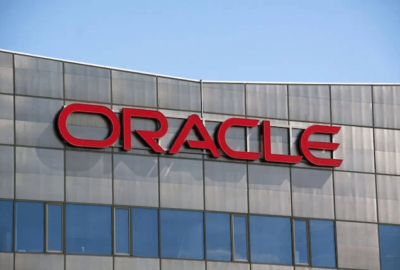
Appeals court turns back Oracle’s latest challenge to JEDI contract
The Court of Appeals for the Federal Circuit agreed entirely with a lower court that had previously rejected Oracle's JEDI challenge.
A federal appeals court on Wednesday roundly rejected Oracle’s latest attempt to force changes to the Pentagon’s JEDI Cloud contract, removing, at least for now, one of the largest remaining legal threats to the multibillion dollar procurement.
In a unanimous 3-0 opinion, the Court of Appeals for the Federal Circuit found a lower court judge got the case exactly right when he ruled in DoD’s favor last year and rejected nearly all of Oracle’s legal claims in the bid protest.
“Notwithstanding the extensive array of claims raised by Oracle, we find no reversible error in the Claims Court’s decision,” the judges wrote.
Oracle had argued the department had unfairly excluded it from the contract competition by setting arbitrary screening criteria for who could receive the award, overlooking alleged conflicts of interest involving several DoD employees, and improperly structuring JEDI as a winner-take-all contract in the first place.
The court sided with Oracle on only one point, finding that DoD made an improper use of an exception to a law that generally requires the government to award its large indefinite-delivery/indefinite quantity contracts to more than one vendor. But like the Court of Federal Claims, the judges found that misstep was a “harmless error” — because Oracle couldn’t meet the gate criteria DoD had set for JEDI, and consequently couldn’t have won the contract anyway.
In order to rule in Oracle’s favor, the appeals court would have had to conclude the lower court’s judgement was “clearly erroneous,” the judges noted.
“In light of the Claims Court’s careful consideration of the record evidence, the court’s conclusion that the Defense Department would have included Gate 1.2 even if it had modified the solicitation to allow for multiple awards, and that Oracle therefore would not have had a substantial chance of securing the contract, is not clearly erroneous. We therefore will not disturb the Claims Court’s determination that the case did not need to be remanded to the Defense Department for a further determination whether a single-source award is appropriate.”
“Gate 1.2” is a requirement DoD added to the JEDI solicitation that removed both Oracle and IBM from the running. It required bidders to have three data centers at least 150 miles from each other that were all certified to the government’s FedRAMP “moderate” level.
Oracle challenged that gate criteria, too. The company argued DoD drafted it arbitrarily, because it required the FedRAMP certifications to be issued long before bidding even began, and because JEDI is structured around its own security standards, not FedRAMP ones. In court filings, the company argued DoD “devised the gated approach for the express purpose of limiting the number of proposals received” to just Amazon and Microsoft.
But the court largely deferred to DoD on the gate criteria, saying the government has wide discretion to set its own cybersecurity requirements.
“Even if the agency expected that only certain firms would be able to satisfy the agency’s minimum needs, the solicitation permitted all responsible sources to submit proposals. Under these circumstances, we agree with the Claims Court that the FedRAMP Moderate authorization component of Gate 1.2 did not transform the solicitation into one for less than full and open competition,” according to Wednesday’s opinion.
Oracle had also contended that the procurement was tainted by conflicts of interest involving three former DoD employees who were involved in the JEDI contract to varying degrees, and who also had connections with Amazon.
But like the lower court and the Defense Department’s inspector general had already found, even if those employees crossed ethical lines, they had no impact on the procurement, since none of them had a significant role in crafting the contract requirements.
Oracle did not immediately respond to a request for comment about what its next steps could be. The company could choose to ask for a rehearing before the full Court of Appeals for the Federal Circuit, seek Supreme Court review, or let Wednesday’s decision stand and cut its losses.
But the JEDI contract is not out of legal jeopardy. A separate lawsuit, filed by Amazon, is still pending in the Court of Federal Claims.
Among a long list of claims, Amazon alleged DoD allowed Microsoft, the winning bidder, to propose a solution to cloud data storage that shouldn’t have been allowed under the terms of the contract. In February, a federal judge found Amazon was likely to win the lawsuit on at least those narrow grounds.
In response, DoD asked for and received the court’s permission to take the contract back for corrective action. The Pentagon currently expects to wrap up that process and possibly re-award the contract by Sept. 16, but the court would still need to decide whether DoD’s actions solved the contract’s legal problems.
Copyright © 2025 Federal News Network. All rights reserved. This website is not intended for users located within the European Economic Area.
Jared Serbu is deputy editor of Federal News Network and reports on the Defense Department’s contracting, legislative, workforce and IT issues.
Follow @jserbuWFED







